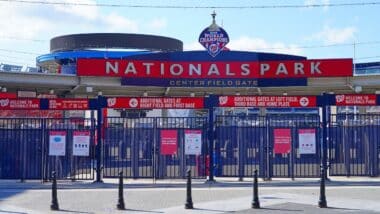 Educational Employees Credit Union California locations may be utilizing unfair methods to maximize their overdraft fees.
Educational Employees Credit Union California locations may be utilizing unfair methods to maximize their overdraft fees.
Many banks offer overdraft protection to their customers to provide security and peace of mind when completing transactions. These programs work by moving money from an existing savings account or line of credit into the account being used for the transaction, preventing the transaction from being denied.
Although overdraft protection may provide peace of mind and flexibility in spending, there is usually an overdraft fee associated with the process. Overdraft fees are charged by the bank for the service of automatically transferring money.
Fees, including overdraft fees, comprise a significant amount of a bank’s income. With the rise of mobile banking and an increase in consumers watching their account balances, this means that overdrafts are happening less frequently. To combat this decrease in profits, many banks have raised their overdraft fees to around $35.
Banks are completely within their rights to raise overdraft fees, but consumer allegations suggest that banks may be using improper methods to maximize the number of overdraft fees they can charge. Many account holders who opt into overdraft protection do so due to a precarious financial situation. When a customer is hit by excessive overdraft charges, their financial security may be in jeopardy because of the program they hoped would help.
A variety of banks may be guilty of unfair overdraft practices. Banks currently being investigated by attorneys include Alliant Credit Union, Astoria Bank, BECU (Boeing Employees Credit Union), Educational Employees Credit Union California (EECU), Nationwide, Pacific Western, Patelco, State Employees Federal Credit Union (SEFCU – New York), and Sterling Bank.
Although these banks are only being investigated for allegations of unfair treatment, customers of EECU and other banks may be eligible to take legal action if they believe they were victimized by deceptive and harmful overdraft policies.
Deceptive Overdraft Policies
One method which may been employed to increase the number of overdraft fees charged is the failure to process transactions in chronological order. Some banks may reorder transactions or process them in batches, meaning that more overdraft accounts may be charged that would be charged if transactions were processed in chronological order.
This problem has been around for years. As early as 2012, Forbes reported on the issue and the Consumer Finance Protection Bureau’s attempts to combat the problem. However, years later consumers are still reporting banks taking advantage of them in this way.
According to account disclosures, EECU may be involved in practices like these. The credit union states that signature debit card transactions may be authorized “hours or sometimes days” after the transaction is completed by the card user. Other transactions are reportedly processed in the order they are received by Educational Employees Credit Union California, rather than in chronological order — something that account holders have no control over.
Additionally, the authorization of these transactions may reduce the available balance of the account before the actual balance is reduced, leading to the next problem: assessing overdraft fees based on the available balance, rather than on the actual balance.
Consumers claim that the utilization of available balance rather than the actual balance to determine overdraft fees is unfair. The available balance is often lower than the actual balance, meaning that overdraft fees are more likely when using this method. EECU reportedly acknowledges the fact that they utilize this method in their overdraft disclosures, stating: “Available balance is used to determine when your account is overdrawn.”
If you were charged unfair overdraft fees by your bank or credit union, you could be eligible to participate in a FREE class action lawsuit investigation. If you qualify, an attorney will contact you to discuss the details of your potential case at no charge to you.
Fill out the form on this page now for a free, immediate, and confidential case evaluation.
ATTORNEY ADVERTISING
Top Class Actions is a Proud Member of the American Bar Association
LEGAL INFORMATION IS NOT LEGAL ADVICE
Top Class Actions Legal Statement
©2008 – 2025 Top Class Actions® LLC
Various Trademarks held by their respective owners
This website is not intended for viewing or usage by European Union citizens.
Get Help – It’s Free
Join a Free Bank Overdraft Fee Class Action Lawsuit Investigation
If your bank and credit union has engaged in deceptive overdraft fee practices, you may have a legal claim. Fill out the form on this page now to find out if you qualify!
An attorney will contact you if you qualify to discuss the details of your potential case.
PLEASE NOTE: If you want to participate in this investigation, it is imperative that you reply to the law firm if they call or email you. Failing to do so may result in you not getting signed up as a client or getting you dropped as a client.
In order to properly investigate overdraft fee claims, you may be required to disclose bank statements to overdraft fee attorneys. Please note that any such information will be kept private and confidential.












